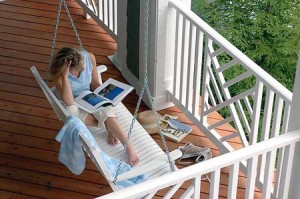
Free Rental Guide!
Learn what it takes to rent your vacation home and maximize your rental income.
Free Rental Guide!
Learn what it takes to rent your vacation home and maximize your rental income.
Professional vacation rental management companies are important to the growth of the industry and need to be careful that they don’t become minimized to property service providers. Unfortunately, some of the large online travel agencies (OTAs) may be contributing to a perception that can undermine the value of the vacation rental manager to the industry.
The renting of vacation homes is a hospitality and guest services business that, among other things, is not and should not be confused with a cleaning service or depository for keys. In the race for competitive edge, control of the marketplace, and profit from vacation rentals, OTAs, rather than promoting management brands, often seem to undervalue or ignore altogether the importance of the professional rental management company’s role.
The primary objective of the OTAs is to increase returns to their shareholders. Their revenue strategies include increasing subscription fees, premium ad-placement fees, and transactional fees as a percentage of the rental rate.
While the future impact of OTAs in vacation rental distribution is uncertain, it is likely they will attempt to have rate parity, best rate guarantees, and no block-out dates to increase their profits as they grow in dominance. Currently, consolidation of OTAs is occurring as larger companies seek to maintain dominance and grow revenues, most recently evidenced with Expedia’s acquisition of Travelosity. Interestingly, Airbnb, a new entrant to the industry, has broken from the traditional OTA model by charging the consumer directly for the service provided, which has been met with high acceptance among users. Consumers appear to be willing to pay the transparent OTA fee for the convenience of using Airbnb as a one-stop service.
While some OTA distribution channels continue to sell listing ads, others are aggressively pushing transactional “Book It Now” integration to vacation rental managers as a necessity for better conversions. Professional managers that do not rely on OTAs know better.
A recent article by Tnooz reported that according to a SaleCycle survey, “conversion rates for those making a travel booking are generally low—often in the single digit percentage range”. The conversion rates specifically for vacation rentals are likely even lower since customers generally know what to expect when it comes to hotel rooms, while vacation rental homes are all unique and travelers have more questions they’d like answered before booking.
One of the most commonly cited reasons for the low online booking conversion is that travelers (in our case, renters) are still not ready to complete their travel booking. Price is a major factor in the decision as they feel a cheaper deal may be found elsewhere and continue shopping. OTAs may be finding themselves in a competitive struggle for consumer loyalty and to convert shoppers, which will drive more consolidation in the distribution industry.
Counterintuitively, OTAs may be conditioning users to look for a better deal elsewhere. Professional managers who do not give up control of their inventory to OTAs can benefit from higher conversion rates resulting from a better shopping experience and the ability to provide best rate guarantees when booking direct from a rental management company not encumbered by OTA agreements.
Another significant consideration is that shoppers will pay more for products and services they know. This is a compelling reason for vacation rental companies to commit resources to building a strong brand! Unfortunately, some OTAs are stripping the value of a vacation rental company’s brand from their ads.
While OTAs may bring parties together, after the initial introduction, these intermediary or “middlemen” have little to do with the actual sale and vacation experience. Large and increasingly predatory OTAs are neither the only source of rental inquiry nor the deciding factor in the purchase and guest experience.
OTA middlemen sometimes appear not to understand that the property manager doesn’t just take accept a booking in exchange for a key and clean the property on departure. Vacation Rentals are not a commodity sale. This misperception minimalizes the services that are regularly performed by professional vacation rental companies to a function of caretaking, rather than recognizing them as managers of guest services and experiences that are essential to the vacation rental industry and which will become increasingly important if vacation rentals are to be recognized as a preferred accommodation type by travelers.
Not only are OTAs overrated as “necessary” for booking conversions, but according to the American Hotel & Lodging Association’s (AHLA) comprehensive study on distribution channels, OTAs do not create demand or raise overall occupancy. Rather, OTAs shift demand from one market or property to another, capturing a middleman fee in the process. This raises costs to the rental property managers. These costs are then passed to the property owner and, ultimately, to the consumer in the form of higher rental rates.
The practices of the OTA should be understood, and companies that choose to use them need to carefully manage how they do so. As OTAs grow in dominance in online search, they can bring a significant additional cost the rental guests that use them.
In time, market forces will impact the role and value of OTAs similarly to the changes that occurred in the hotel industry as hotelbrand.coms better managed their use of distribution channels and avoided high OTA fees by improving their online marketing and using customer loyalty programs.
Currently in Europe, OTA rate parity is being challenged under antitrust regulations. Some hotel brands have begun providing a comparison of intermediary and direct rates on their websites, dispelling consumer perceptions that shopping via OTAs will result in a better price and increasing brand direct conversion rates.
While OTAs change pricing models and strategies, vacation rental management companies need to remember that guest services are critical to successful management in the hospitality business.
Professional rental companies are in the customer relationship and care business. A booking is just one part of the multidisciplinary management skills necessary to be in the hospitality business.
Travelers are seeking rest and relaxation, new experiences, rejuvenation, and the creation of fond memories. While a well-cared-for property is important, professional rental managers need to understand and exceed guest expectations, which requires a high level of personalized services for success.
Booking a property for a vacation is more than a real estate transaction or booking. If the vacation rental industry becomes reduced to the process of booking a property for an accommodation through a third-party OTA, professional vacation rental management companies will be providing a disservice to guests, property owners, our businesses, and the future of the industry.







This is a great article which every VR home owner should
read. My own experience as an online booking agency owner bears out the
suggestion that the OTAs charge a lot for a service that may not be actually
necessary. Having said that, if a VR
manager is not prepared to go online with their own website and do what it
takes to be seen, then he has little choice but to become a peon of the OTAs.
I run a small online booking agency in Cairns , Australia.
We have about 30 properties listed. Most of them are also listed with the big
online listers – mainly Stayz (Homeaway owned), Flipkey and AirBnB.
Curiously, a handful of our properties are only listed with
us but they have similar occupancy rates as those listed with the OTAs. I would
agree with the comment that “OTAs do not create
demand or raise overall occupancy.”
Our difference is that we know every one of our homes. We
know all of our owners personally, we visit their homes and we photographed all
of them. Consequently, we do not have a
million dollar insurance scheme because we do not need it. We only take on owners who understand customer
service and have properties that will work as holiday homes.
Yes, we are middlemen too but we are available on the phone
every day to talk to our customers and answer their questions on behalf of our owners.
The commission we receive from our owners is fully justified by the time and
effort we have spent handling their enquiries and securing bookings.
For many owners, offering their property investment as a
vacation rental is their first experience of working in tourism. Despite the fact that we have all been
tourists at one time or another, it does not follow that most people really
have much of a clue when it comes to servicing visitors!
My partner and I have been working in tourism for over 30
years and our knowledge is there for our owners to tap into.
The same goes for our visitors. Sure, we help them find a
home that will suit them and if we do not have the right one available we will
try to pass them on to someone who does. That is only part of what we do. The
fact is that we are real people on the end of the phone line, living in Cairns,
so naturally we get a lot of questions about the region, things to do, the
weather, restaurants, car hire and so on. Talking to our customers every day
gives us a very powerful insight into their wants and needs which helps us to
modify and fine tune our marketing. I
wonder how well the automatic systems of a Homeaway, a Flipkey or an AirBnB can
do the same thing?
Person to person communication is what customer service is all
about. Of course, we do not have enough time to be yacking on the phone all day
so it is up to us to provide plenty of information on our website or to be able
to quickly send out an email with lots of useful links to answer those
questions.
Without a doubt, though, the personal communication that
takes place on a phone is our competitive advantage. It is also the Achilles
Heel of the OTAs whose business plan involves very high volumes to enable costs
to be diluted. This, inevitably, requires
the commoditization of product. While not wishing to denigrate hotels, they are
in many ways, a commodity. Vacation rentals, on the other hand, are individual,
unique and often quirky accommodation experiences that are far from the homogenous hotel products that are built and
operated to meet a particular market and price level.
As an industry, we should resist all attempts to homogenise
and commodify the idiosyncratic living experiences that we offer because that
is the difference that defines our industry and attracts our customers.
Nick, thank you for the
insightful comments, They expand the questions about how distribution channels
will impact the future of the vacation rental industry. I agree that
renting a vacation home is not a commodity that is a homogenous product like
hotels. We are a very different segment of the accommodation industry.
Interesting article !
Well done and expresses a very true perspective on how dangerously close the OTA’s are coming to upsetting an otherwise flourishing industry.
Almost one year on and nothing has improved.
Airbnb continue to dictate even the terms of cancellation and do their best to drive rental yields down on the basis of telling owners it will “fill your house” if you follow our suggested rate tips. Interesting to note, I have several houses all exactly the same, in the same location, and their price tips differ considerably on a daily basis, house to house. So much for their supposed knowledge of the local markets.
Now today we have Trip Advisor telling me that they are “improving” the booking process by giving booking guests a 24 cancellation grace period! Improving for whom? TA of course……..
Can you tell us more about this? I’d want to find
out some additional information.